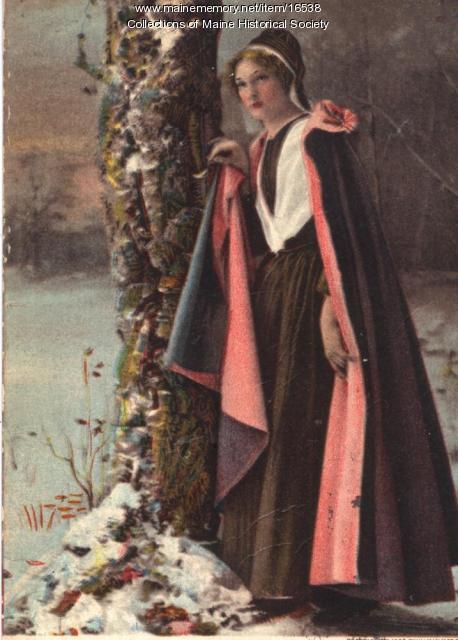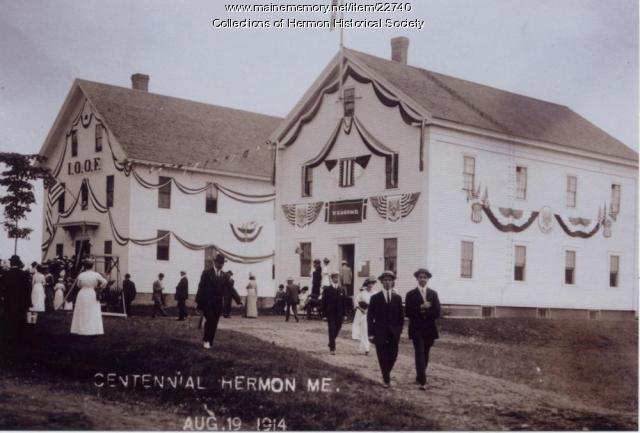Keywords: Universal
Item 74889
Universal electric stove, ca. 1922
Contributed by: Maine Historical Society Date: circa 1922 Media: Steel, porcelain, copper
Item 74881
Universal Electric Mixabeater, ca. 1915
Contributed by: Maine Historical Society Date: circa 1915 Media: Aluminum, steel
Item 42824
Assessor's Record, 303-309 Cumberland Avenue, Portland, 1924
Owner in 1924: Universal Laundry Inc. Use: Chimney
Item 42823
303-309 Cumberland Avenue, Portland, 1924
Owner in 1924: Universal Laundry Inc. Use: Laundry
Item 109944
University of Maine, Orono, 1944
Contributed by: Maine Historical Society Date: 1944 Location: Orono Client: University of Maine Architect: Olmsted Brothers
Item 110249
University of Maine concert hall and museum, Orono, 1981-1984
Contributed by: Maine Historical Society Date: 1981–1984 Location: Orono Client: University of Maine Architect: Eaton W. Tarbell
Exhibit
A Brief History of Colby College
Colby originated in 1813 as Maine Literary and Theological Institution and is now a small private liberal arts college of about 1,800 students. A timeline of the history and development of Colby College from 1813 until the present.
Exhibit
Westbrook Seminary: Educating Women
Westbrook Seminary, built on Stevens Plain in 1831, was founded to educate young men and young women. Seminaries traditionally were a form of advanced secondary education. Westbrook Seminary served an important function in admitting women students, for whom education was less available in the early and mid nineteenth century.
Site Page
Mantor Library, University of Maine Farmington
View collections, facts, and contact information for this Contributing Partner.
Site Page
Maine Folklife Center, University of Maine
View collections, facts, and contact information for this Contributing Partner.
Story
From France to Farmington
by Celine Couillaut
I arrived in Maine and never left.
Story
From Istanbul to Machias
by Zeynep Turk
Zeynep Turk talks about moving from Istanbul, Turkey to Machias, Maine for school.
Lesson Plan
Longfellow Studies: Integration of Longfellow's Poetry into American Studies
Grade Level: 9-12
Content Area: English Language Arts, Social Studies
We explored Longfellow's ability to express universality of human emotions/experiences while also looking at the patterns he articulated in history that are applicable well beyond his era. We attempted to link a number of Longfellow's poems with different eras in U.S. History and accompanying literature, so that the poems complemented the various units. With each poem, we want to explore the question: What is American identity?
Lesson Plan
Longfellow Studies: The Acadian Diaspora - Reading "Evangeline" as a Feminist and Metaphoric Text
Grade Level: 6-8, 9-12
Content Area: English Language Arts, Social Studies
Evangeline, Longfellow's heroine, has long been read as a search for Evangeline's long-lost love, Gabrielle--separated by the British in 1755 at the time of the Grand Derangement, the Acadian Diaspora. The couple comes to find each other late in life and the story ends. Or does it?
Why does Longfellow choose to tell the story of this cultural group with a woman as the protagonist who is a member of a minority culture the Acadians? Does this say something about Longfellow's ability for understanding the misfortunes of others?
Who is Evangeline searching for? Is it Gabriel, or her long-lost land of Acadia? Does the couple represent that which is lost to them, the land of their birth and rebirth? These are some of the thoughts and ideas which permeate Longfellow's text, Evangeline, beyond the tale of two lovers lost to one another. As the documentary, Evangeline's Quest (see below) states: "The Acadians, the only people to celebrate their defeat." They, as a cultural group, are found in the poem and their story is told.





















